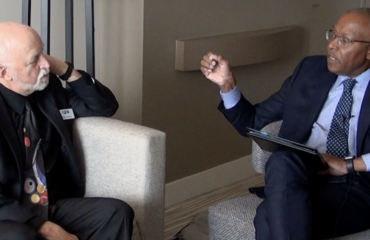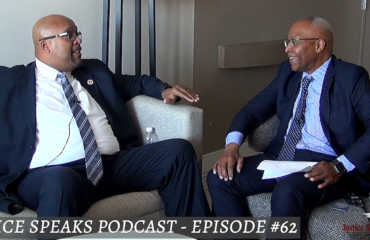Distracted Driving: A Company’s Nightmare – Justice Speaks Podcast
Do you have a policy on texting or using a cell phone while driving?
If you answered the first two questions yes, and no on the third, how much insurance do you have? Because at some point, it is likely you will need to use it. Distracted driving is dangerous and when you or your employee causes a crash because of it, your company can be held responsible for the resulting injuries and fatalities.
What is Distracted Driving?
In 2012, distracted driving in the United States alone resulted in at least:
-
- 3,328 fatalities
- 410,000 injuries
Experts everywhere have declared distracted driving an epidemic. But what actually is distracted driving? It is performing any activity that is secondary to driving. Changing the radio station, reaching over for a purse or briefcase, eating while driving, reaching into the back seat because the children are arguing, are all examples of distracted driving.
To really examine distraction, there are three primary types. They are:
-
- Manual distractions
- Visual distractions
- Cognitive distractions
Any distraction while driving is one or a combination of those three. Changing the temperature in the car is a manual distraction: your handsare off the steering wheel. Looking at the radio or GPS display is a visual distraction: your eyes are off the road. Thinking about yesterday’s meeting is a cognitive distraction: your brain is not focused on driving. Each of these distractions may not be as significant as others. Changing the temperature may be a brief interruption, while reaching into the backseat to search for an item may not be brief and involves more than one type of distraction.
Hands-Free is Not Risk-Free
Texting while driving is one form of distraction recognized by all as significantly dangerous. The research reveals that someone who texts and drives is 23 times more likely to be in a crash. Texting uses all three forms of distraction: manual, visual, and cognitive and thus it is a significant risk.
People are also getting the message that holding a cell phone and talking to someone while driving is also dangerous. It is distracted driving. However, many people have the mistaken belief that talking to someone on a hands-free phone while driving is safe. This is wrong and could end in a fatal mistake. Talking to someone while using a hands-free phone or while holding the phone is still talking to someone who is not physically present, it is a cognitive distraction. Your mind is not focused on the driving.
A common question asked when discussing cell phones and driving is what about passengers in the car? After all, talking on the phone is just like talking to a passenger, right? That is absolutely wrong! For an adult, there are significant differences between having a conversation with passenger in the car and talking on a cell phone. With a passenger, she or he is another set of eyes and able to spot and point out driving hazards. In fact, a passenger can recognize when traffic is challenging and just stop talking. None of that is true during a cell phone conversation.
Another false belief is the perception of multi-tasking. What we know from the science is that multi-tasking is a myth. As humans, our brain can only handle one activity at a time; it is not even possible to train your brain to multi-task. When we try to do multiple tasks, our brain is really switching back and forth between the tasks and thus not giving its full attention to any one action. This includes talking on the phone.
Distracted Driving Liability
-
- $21.6 Million, Technology company, 2007 crash in FL
- $21 Million, Soft drink beverage company, 2010 crash in TX
- $16.1 Million, Lumber distributor, 2001 Crash in AR
- $18 million, Commercial Transport company, 2008 crash in MO
- 2 Million, Paper company, 2007 crash in GA
The above figures are a small sampling of companies’ liability from resulting lawsuits when their employees used a cell phone while driving. It is important to note is that two of the companies listed above actually had cell phone policies in place; a policy that allowed for hands-free cell phone usage. Those companies were still held liable! Also noteworthy, one of those companies listed above no longer exists. Juries are declaring that when companies allow an employee to use a phone while driving, whether it is by texting or speaking on the phone, that company will be held responsible for their employees’ actions.
Businesses Are Taking Action
In December 2011, based on both the research and a number of crashes it investigated, the National Transportation Safety Board (NTSB) called for a nationwide ban on the use of cell phones while driving. Previously, in 2009, NTSB instituted an agency policy that no employee of NTSB shall use a cell phone while driving.
But it is not only the NTSB that has instituted this policy. A few years back, the National Safety Council surveyed Fortune 500 companies about their cell phone policies. Looking at potential liability and employee safety, 18% of the companies that responded indicated they had instituted a complete ban on the use of cell phones while driving, including Shell Oil, DuPont, BP, Abbott, Cargill, and Time Warner Cable.
Notably, the vast majority of businesses indicated that there was no reduction in work production, and one-in-five indicated that they had seen a reduction in crashes and of property damage.
A Win-Win Environment
A policy that puts its employee’s safety first that also benefit’s the company’s bottom line is a win-win endeavor. A comprehensive policy banning any cell phone use while on company time or doing company work while driving is a great first step. However, a ban is not enough. It is just as important for the leadership to be an active role model and to educate their employees why this is important. Creating an atmosphere of a safe work environment whether it is in the office or on the road is a powerful message. It improves your company’s bottom line, it demonstrates a concern for all of your employees, and ultimately it will save lives.
Get more articles like this
in your inbox
Subscribe to our mailing list and get the latest information and updates to your email inbox.
Thank you for subscribing.
Something went wrong.









